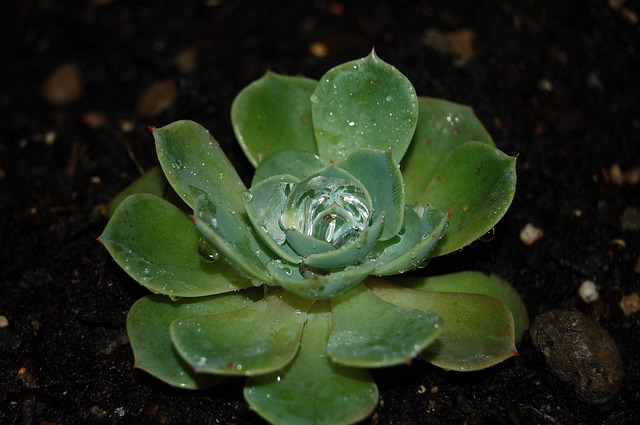News
Officials: Stolen California succulents, smuggled to Asia

The succulents, called Dudleya farinosa, fetch up to $50 each in Asia, where a growing middle class is fueling demand, reported the Mercury News in San Jose, California. (Pixabay photo)
SAN JOSE, Calif. – State wildlife officials say they have uncovered an international scheme in which thieves from Korea and China slip into wild landscapes in Northern California to pluck succulents to sell on the thriving black market in Asia.
The succulents, called Dudleya farinosa, fetch up to $50 each in Asia, where a growing middle class is fueling demand, reported the Mercury News in San Jose, California.
Since an investigation started in December, state officials have nabbed suspects from China and Korea in three separate thefts along the Humboldt and Mendocino coast and recovered thousands of plants about to be shipped. They say organized smuggling rings based in Asia are behind the thefts.
The investigation started after an anonymous woman called Patrick Freeling, a California Department of Fish and Wildlife warden known for his diligence, to report she saw a man at Mendocino’s tiny post office shipping 60 packages to China.
“What are you shipping?” she asked, as the line grew, snaking out the door. “The man put his finger up to his lip and said, ‘Shhhh, something very valuable,”’ said Freeling. “Where did you get them?” she asked. The man pointed toward the ocean.
Alerted by Freeling, U.S. Customs and Border Protection X-rayed the packages – and discovered Dudleya farinosa.
After another tip about a suspicious minivan parked on Highway 1 along the Mendocino coast, Freeling found 850 plants and 1,450 smaller “rosettes.”
The suspects, who rented the van at San Francisco International Airport and were headed to Los Angeles, spoke no English and carried Korean passports.
“It is my belief that they were picking plants, filling boxes, filling the van and shipping them as they moved south down the coast,” said Freeling. “They had numerous contacts for succulent dealers in California and abroad.”
In another bust, wildlife officers pulled over a suspects’ van, rented at the Las Vegas airport, made arrests and seized 1,334 plants – all on their way to being shipped overseas.
They then raided the suspects’ cabin among the redwoods at the cheap and threadbare Ocean Grove Lodge in Trinidad and found another 1,000 of the succulents there.
The investigations will continue, as new tips arrive, said Patrick Foy, a spokesman with the wildlife agency.
“Once it hit our radar screen, and we looked more for it, we discovered that it’s bigger than we thought,” he said.
Admired for their tenacity, the plants burst into beauty when they bloom, erecting a tall stem and a candelabra-like cluster of yellow flowers.
“People call them ‘charismatic,”’ said Dudleya expert Stephen McCabe, emeritus director of research at UC Santa Cruz Arboretum, who helped identify the purloined plants for state wildlife law enforcement officials.
“Sometimes you’ll see one hanging on by a little piece of root in a crack in the rock, and you think: ‘The next wind will take it,”’ he said. “Then they’re still there the next year.”























